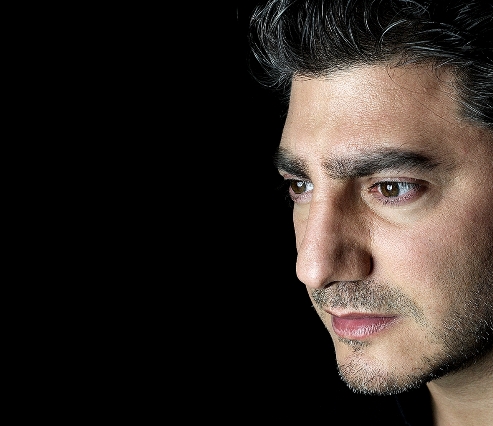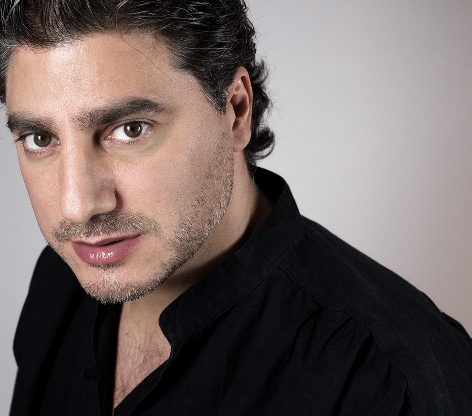|
Interview: José Cura on Turandot at Covent Garden and keeping opera modern
Musical Criticism Hugo Shirley 6 September 2008 EXCERPT
'Turandot is a very tricky opera. The problem with it is that it's become famous just because of one song. We hear that and we think of the World Cup, we think Three Tenors, we think of big stadiums. But the opera is really very complicated. It's a very Freudian opera in the sense of the conflict and confrontations between the female elements and the male elements, by which I also mean within the individuals themselves. We have the female in conflict with the past and in fear of physical contact, and the male who wants to possess. It's an opera that came around the same time as Lulu where psychology was evolving, it was the peak time for Freudian and Jungian theory and an extremely complicated period, but a fascinating one for humanity too. It was a time when people were discovering lots of things that were always there and had never been thought or talked about before. In the middle of all this Puccini writes an opera which finishes with a big conflict, one that remained unsolved because he died. So some people talk about the great music he might have written if he'd lived to finish it, while others read a lot into it, since Turandot was also a very autobiographical opera for Puccini. They see the conflict brought about by the Manfredi girl in his family; Liú was the alter-ego of Manfredi and Turandot the alter-ego of Elvira, his own wife. For them this explains the confrontation between the two women, the sweetness and love of one and the aggression of the other, Turandot, who in the end surrenders to love. With this personal dimension, some people think he would never have been able to write the proper music for this duet. Not because of any technical obstacles, but because of the conflicts of his own psychological situation.' Bearing all this in mind, I ask Cura about the completion of the opera by Franco Alfano, who pieced together the final duet and finale from Puccini's sketches to produce the version usually performed in the opera house today. 'I think people are wrong to say "Oh, Alfano did a shit job". I don't think that's fair. The guy was not Puccini and that's it. It's not fair to lay into a composer because he couldn't rise to the challenge. He did what he could and was very humble in the way he tried to serve his teacher and master. He gathered all the pieces as best he could and he wrote what he knew. Of course it's easy to say, "It's not Puccini and because it's not Puccini it's shit." For some people that's just an action reflex, and they're just repeating an opinion that's chic. I wonder how many really know what they're saying or have really analysed what the guy did, which is actually really interesting. If you acknowledge the fact that he's not Puccini and if you take it on its own terms, harmonically it's very revolutionary. The first version of Alfano's ending is even more complicated, with harmonies that were completely ahead of their time, so the guy was not stupid. Even suppose for a moment that Alfano was a genius, in any case he was not the same guy who wrote the music before so there was never going to be a perfect match in the music.' And does Cura have any views on Luciano Berio's completion? 'I've not heard it. And with all due respect to Berio, it was probably a very interesting adventure but I don't see the necessity for it. Having said that, I'm due to do a Turandot in a couple of months in Germany and I heard they're planning to finish with the death of Liú, which is another solution. One thing's for sure, let me tell you: Calaf without the final duet is a piece of cake! Yes, 'Nessun Dorma' is an appointment but it's solvable. The last duet, though, is a massacre; it really is very tough to sing. So if the fashion is to start cutting the last duet, there'll be a lot of happy Calafs out there!' I lead the conversation onto other plans. Cura has sung several less well-known roles, starring for example in productions of El Cid and Edgar last season. I ask if there are any other unexpected roles he's keen to tackle? 'I have some plans but some of them depend on the possibility of learning the language. I've had several people ask me to do The Queen of Spades but I really have to learn the Russian. That's not something I can do overnight. I hate singing phonetics, it doesn't work with my style of interpretation which has always depended on the subtext. It's OK to sing in German or in Russian just repeating things phonetically and having an overall idea of the plot. It's another thing entirely to speak the language and to understand the "perfume" of the words. So whether this is something for the future, or just the dreams, I don't know. 'Another is Peter Grimes, but I'd love to do that in England. I want to learn the role and perform it in the proper way by coming to the source. But every time I say this I hear, "No, but the accent and this and that", and I say "Give me a break, have you ever heard English people singing in Italian?" They're very good and they try as hard as they can but you can hear the accent. It's natural, you can't avoid it. So does that mean that only English people can sing Peter Grimes, only Italians can sing Italian opera, only French people sing in French? Then we'd end up with a very limited international panorama. All of a sudden we'd have theatres closing. So I think this is nonsense. It's interesting to have someone in a role if they care about it and train hard for it, even if you hear the accent here and there. Who cares about that as long as you have an interesting psychological approach. So sometimes when you want to experiment you have to fight against prejudice. I don't know, I'll end by doing Peter Grimes somewhere else, for sure, because I want to do it. It would be a pity, because it's one thing to do it here to learn the style and how do it properly from someone who's English. It's a different thing to do it elsewhere and learn it from someone who's not English. Every time I mention it casually here I get a smile in return. So I've just stopped mentioning it! I'll have to live with that.' So, with Hermann in The Queen of Spades and Peter Grimes, Cura's eyeing up Russian and British roles, has he ever thought about tackling the German repertory?
[…] Aside from his busy operatic schedule, Cura is regularly involved in education work. This London visit will also see him lead a masterclass at the Royal Academy of Music. Does all this mean he's confident in the future of opera? 'Opera has a future, but it depends on us being modern, it doesn't depend on opera. And I don't know why - and you see this particularly in London - there's been such a revolution in straight theatre but in opera we still think that the way it was done fifty years ago was ideal and that what we're doing today isn't. There's an idea today that a modern production is one where the audience needs a manual of explanations to understand what's going on. That's not being modern, that's not having anything interesting to say about a piece and just being weird so at least no-one will say you're copying. But from there to being modern is a long way. Modern artists have always been those who understood their society, the problems of their times and reflected them in their artistic activities, and that's what we need to do. If we continue to do Otello as they did it in the fifties, you ignore the worldwide crisis of fundamentalism of today: in 2008, the fact that Otello is a Muslim converted to Christianity opens up a whole world to investigate. After 2001 and September 11, the whole approach to a fundamentalist opera like Otello has changed. That's just to mention one example and it's something that can be applied to many other operas. 'That's the challenge but of course you need guts for it. If you go on stage destroying the myth that Samson was a saint, for example, and point out to people that he was killing in the name of God and therefore is comparable to a terrorist of today, then you have a scandal. If you point that out people might accuse you of being anti-Semitic because Samson was a Jew. But the philistines are also killing in the name of their god, Dagon, so both were behaving in the same way, so it's not against a particular race or group of people, it's understanding that killing in the name of God is something that's just as modern today 3,500 years after the original story of Samson. It's the same with so many operas, take Ballo in maschera with all its political intrigue, or Aida. Aida might be famous for elephants and monkeys on stage but we shouldn't forget about what's going on behind it all. So that's the future, trying to find that aspect of these works. And if you want to do that coming in in a flying saucer then that's fine, but if that's all you do then it's ridiculous. There's no point in trying to create a scandal for the sake of it, people will have forgotten it by the next day.'
|
 [...]
Cura is returning to Covent Garden in December to sing his
first Calaf for the company. Everyone knows 'Nessun dorma'
but for some people there's a problem understanding what
Calaf is about as a character. How does he set about
persuading an audience that there's more to him than the one
aria?
[...]
Cura is returning to Covent Garden in December to sing his
first Calaf for the company. Everyone knows 'Nessun dorma'
but for some people there's a problem understanding what
Calaf is about as a character. How does he set about
persuading an audience that there's more to him than the one
aria?